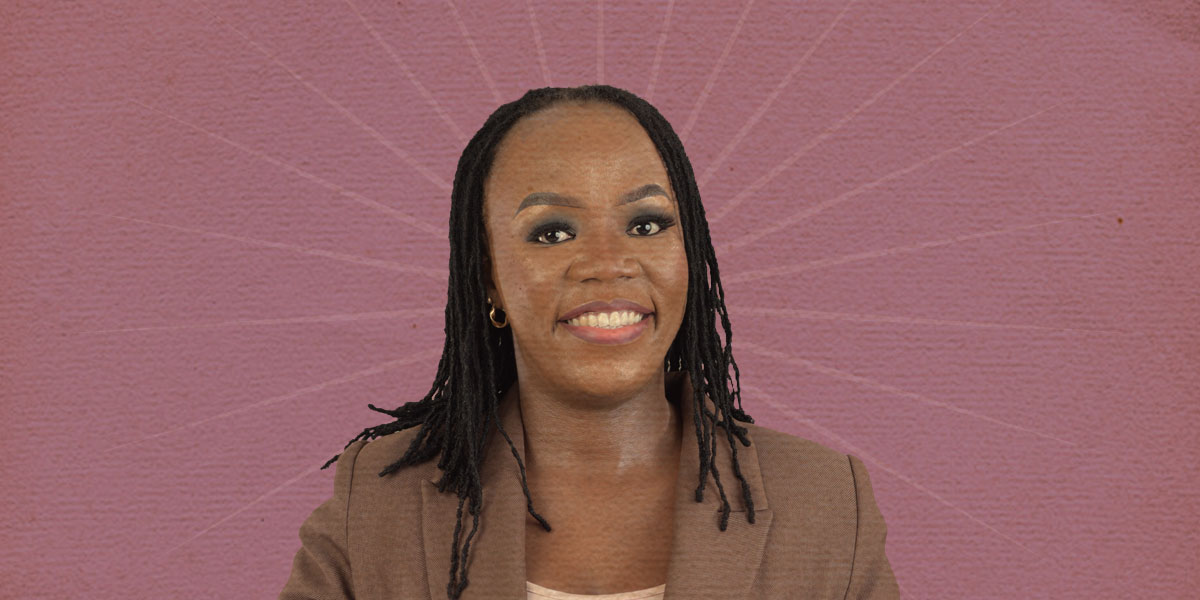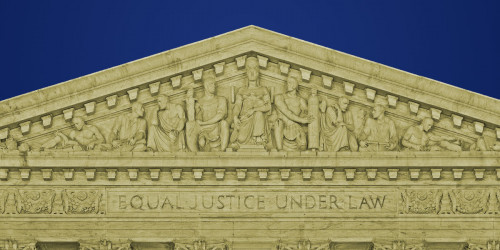Interviewer: Jillian York
*This interview has been edited for length and clarity.
Obioma Okonkwo is a lawyer and human rights advocate. She is currently the Head of Legal at Media Rights Agenda (MRA), a non-governmental organization based in Nigeria whose focus is to promote and defend freedom of expression, press freedom, digital rights and access to information within Nigeria and across Africa. She is passionate about advancing freedom of expression, media freedom, access to information, and digital rights. She also has extensive experience in litigating, researching, advocating and training around these issues. Obioma is an alumnus of the Open Internet for Democracy Leaders Programme, a fellow of the African School of Internet Governance, and a Media Viability Ambassador with the Deutsche Welle Akademie.
York: What does free speech or free expression mean to you?
In my view, free speech is an intrinsic right that allows citizens, journalists and individuals to express themselves freely without repressive restriction. It is also the ability to speak, be heard, and participate in social life as well as political discussion, and this includes the right to disseminate information and the right to know. Considering my work around press freedom and media rights, I would also say that free speech is when the media can gather and disseminate information to the public without restrictions.
York: Can you tell me about an experience in your life that helped shape your views on free speech?
An experience that shaped my views on free speech happened in 2013, while I was in University. Some of my schoolmates were involved in a ghastly car accident—as a result of a bad road—which resulted in their death. This led the students to start an online campaign demanding that the government should repair the road and compensate the victims’ families. Due to this campaign, the road was repaired and the victims’ families were compensated. Another instance is the #End SARS protest, a protest against police brutality and corrupt practices in Nigeria. People were freely expressing their opinions both offline and online on this issue and demanding for a reform of the Nigerian Police Force. These incidents have helped shape my views on how important the right to free speech is in any given society considering that it gives everyone an avenue to hold the government accountable, demand for justice, as well as share their views about how they feel about certain issues that affect them as an individual or group.
York: I know you work a bit on press freedom in Nigeria and across Africa. Can you tell me a bit about the situation for press freedom in the context in which you’re working?
The situation for press freedom in Africa—and particularly Nigeria—is currently an eye sore. The legal and political environment is becoming repressive against press freedom and freedom of expression as governments across the region are now posing themselves as authoritarian. And they have been making several efforts to gag the media by enacting draconian laws, arresting and arbitrarily detaining journalists, imposing fines, and closing media outlets, amongst many other actions.
In my country, Nigeria, the government has resorted to using laws like the Cybercrime Act of 2015 and the Criminal Code Act, among other laws, to silence journalists who are either exposing their corrupt practices, sharing dissenting views, or holding them accountable to the people. For instance, journalists like Agba Jalingo, Ayodele Samuel, Emmanuel Ojo and Dare Akogun – just to mention a few who have been arrested, detained, or charged to court under these laws. In the case of Agba Jalingo, he was arrested and detained for over 100 days after he exposed the corrupt practices of the Governor of Cross River, a state in Nigeria.
The case is the same in many African countries including Benin, Ghana, and Senegal. Journalists are arrested, detained, and sent to court for performing their journalistic duty. Ignace Sossou, a journalist in Benin, was sent to court and imprisoned under the Digital Code for posting the statement of the Minister of justice on his Facebook’s account. The reality right now is that governments across the region are at war against press freedom and journalists who are purveyors of information.
Although this is what press freedom looks like across the region, civil society organizations are fighting back to protect press freedom and freedom of expression. To create an enabling environment for press freedom, my organization, Media Rights Agenda (MRA) has been making several efforts such as instituting lawsuits before the national and regional courts challenging these draconian laws; providing pro bono legal representation to journalists who are arrested, detained, or charged; and engaging various stakeholders on this issue.
York: Are you working on the issue of online regulation and can you tell us the situation of online speech in the region?
As the Head of Legal with MRA, I am actively working around the issue of online regulation to ensure that the rights to press freedom, freedom of expression, access to information, and digital rights are promoted and protected online. The region is facing an era of digital authoritarianism as there is a crackdown on online speech. In the context of my country, the Nigerian Government has made several attempts to regulate the internet or introduce social media bills under the guise of combating cybercrimes, hate speech, and mis/disinformation. However, diverse stakeholders – including civil society organizations like my organization – have, on many occasions, fought against these attempts to regulate online speech for the reason that these proposed bills will not only limit freedom of expression, press freedom, and other digital rights. They will also shrink the civic space online, as some of their provisions are overly broad and governments are known for using laws like this arbitrarily to silence dissenting voices and witch hunt journalists, opposition entities, or individuals.
An example is when diverse stakeholders challenged the National Information and Technology Development Agency (NITDA), an agency saddled with the duty of creating a framework for the planning and regulation of information technology practices activities and systems in Nigeria over the draft regulation, “Code of Practices for Interactive Computer Service Platforms/Internet Intermediaries.” They challenged the draft regulation on the basis that it must contain some provisions that recognize freedom of expression, privacy, press freedom and other human rights concerns. Although the agency took into consideration some of the suggestions made by these stakeholders, there are still concerns that individuals, activists, and human rights defenders might be surveilled, amongst other things.
The government of Nigeria is relying on laws like the Cybercrime Act, Criminal Code Act and many more to stifle online speech. And the Ghanaian government is no different as they are also relying on the Electronic Communication Act to suppress freedom of expression and hound critical journalists under the pretense of battling fake news. Countries like Zimbabwe, Sudan, Uganda, and Morocco have also enacted laws to silence dissent and repress citizens’ internet use especially for expression.
York: Can you also tell me a little bit more about the landscape for civil society where you work? Are there any creative tactics or strategies from civil society that you work with?
Nigeria is home to a wide variety of civil society organizations (CSOs) and non-governmental organizations (NGOs). The main legislation that regulates CSOs are federal laws such as the Nigerian Constitution, which guarantees freedom of association, and the Companies and Allied Matters Act (CAMA), which provides every group or association with legal personality.
CSOs in Nigeria face quite a number of legal and political hurdles. For example, CSOs that wish to operate as a company limited by guarantee need to seek the consent of the Attorney-General of the Federation which may be rejected. While CSOs operating as incorporated trustees are mandated to carry out some obligations which can be tedious and time consuming. On several occasions, the Nigerian Government has made attempts to pressure and even subvert CSOs and to single out certain CSOs for special adverse treatment. Despite receiving foreign funding support, the Nigerian government finds it convenient to berate or criticize CSOs as being “sponsored” by foreign interests, with the underlying suggestion that such organizations are unpatriotic and – by criticizing government – are being paid to act contrary to Nigeria’s interests.
There are lots of strategies or tactics CSOs are using to address the issues they are working on, including issuing press statements, engaging diverse stakeholders, litigation, capacity-building efforts, and advocacy.
York: Do you have a free expression hero?
Yes, I do. All the critical journalists out there are my free expression heroes. I also consider Julian Assange as a free speech hero for his belief in openness and transparency as well as taking personal risk to expose the corrupt acts of the powerful, an act necessary in a democratic society.










